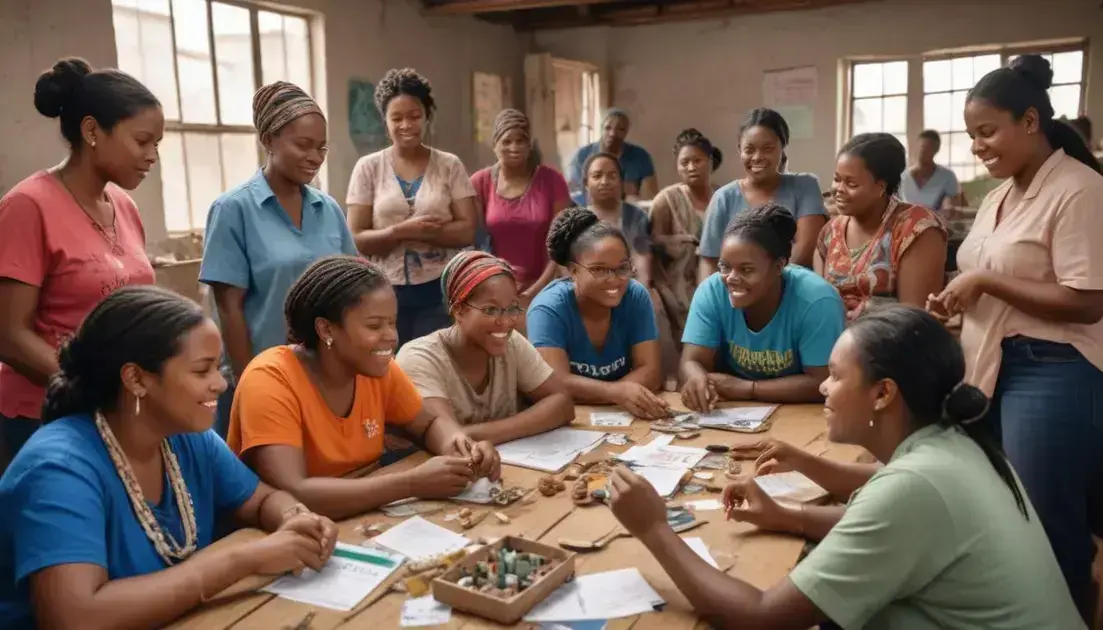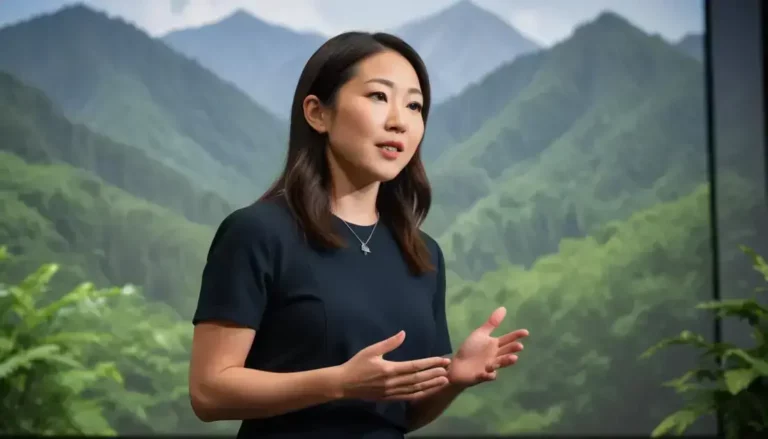Empowering the Marginalized: Economic Inclusion Insights
Economic inclusion is essential for empowering marginalized communities, as it provides access to financial services, promotes job opportunities, and fosters collaboration between local organizations and innovative solutions to address social challenges.
Economic inclusion isn’t just a buzzword; it represents a profound change in how we engage with those marginalized in society. Want to explore the strategies driving this change?
A voice for the homeless: Andrew Funk’s journey
Andrew Funk has dedicated his life to advocating for the homeless, striving to create a world where every individual has a voice and a chance to thrive. His journey began when he personally experienced homelessness, which ignited a passion for addressing this pressing social issue. Through community outreach and innovative programs, he has worked tirelessly to bridge the gap between the homeless and essential services.
Empowering Change: Funk’s approach involves more than just providing temporary solutions. He emphasizes the importance of economic inclusion, aiming to integrate homeless individuals into the workforce through job training and support. By collaborating with local businesses, he helps them recognize the potential that these individuals possess.
Moreover, Funk believes in fostering a sense of community among those he serves. He organizes events that encourage open dialogue and social interaction, empowering homeless individuals to share their experiences. This not only raises awareness about their struggles but also creates a support network that is vital for long-term success. By advocating for systemic changes, Funk is not just giving a voice to the homeless; he is actively transforming society’s perceptions and policies regarding homelessness.
Through his dedication and innovative strategies, Andrew Funk exemplifies the power of individual advocacy in driving societal change. His story is a testament to the resilience of the human spirit and the impact of compassion in addressing economic disparities.
Bridging the financial gap: Yanan Wu’s impact
Yanan Wu is transforming the way financial services reach underserved communities. Her innovative approach focuses on bridging the financial gap that often excludes marginalized populations. By developing tailored financial products, she aims to empower individuals who traditionally lack access to essential banking services.
Innovative Solutions: Wu identifies barriers that prevent people from engaging with the financial system, such as high fees and a lack of trust. Through workshops and community forums, she educates individuals on money management and financial literacy, providing them with the tools they need to make informed decisions.
Additionally, her collaboration with tech companies allows the creation of user-friendly platforms that simplify access to financial products. These platforms provide features like low-cost accounts and personalized financial advice, ensuring a better understanding of available options. By focusing on accessibility and convenience, Wu is changing perceptions of banking.
Wu’s impact is evident in the growing number of individuals who not only gain access to financial resources but also learn how to utilize them effectively. Her work exemplifies the potential of cultural competence in finance, highlighting the importance of understanding community needs in developing successful financial solutions. Through her initiatives, Yanan Wu is not just providing access; she is fostering financial empowerment for all.
Collaboration for change: integrating community and innovation
Collaboration is key to driving change. In many communities, innovative solutions are emerging through the integration of local organizations and technological advancements. By fostering partnerships, stakeholders can leverage their unique strengths to address pressing social challenges, including poverty and unemployment.
Innovative Approaches: These collaborations often lead to creative initiatives that directly respond to community needs. For example, tech companies team up with non-profits to develop platforms that connect job seekers with employment opportunities. This not only helps individuals find work but also enhances the overall economic ecosystem.
Community engagement plays a crucial role in this process. When local voices are included in the development of solutions, the outcomes are often more relevant and effective. Workshops, forums, and outreach programs encourage collaboration, ensuring that all community members can contribute ideas and feedback.
Moreover, such collaborations can lead to sustainable innovations that continue to evolve over time. By continually assessing the impact of these initiatives, organizations can adapt and refine their strategies to meet changing needs. The successful integration of community input with innovative practices illustrates how collaboration can pave the way for substantial progress toward economic inclusion.
In conclusion, fostering economic inclusion is crucial for community empowerment
Through the efforts of individuals like Andrew Funk and Yanan Wu, we see the impact of innovative solutions in bridging gaps for the underserved.
The collaboration between communities and organizations paves the way for new opportunities, creating a stronger economic fabric. When we come together to share ideas and resources, we can change lives and futures.
It is essential for us to continue supporting efforts that promote financial empowerment and collaboration. By embracing these approaches, we can make our society more inclusive and equitable for everyone.
Frequently Asked Questions
What is economic inclusion and why is it important?
Economic inclusion refers to ensuring that all individuals, especially those from marginalized communities, have access to financial services and opportunities. It is crucial for reducing poverty and promoting social equity.
How do community collaborations impact financial empowerment?
Community collaborations bring together resources and ideas, fostering innovative solutions that meet the specific needs of underserved populations, ultimately enhancing financial empowerment.
What role do individuals like Andrew Funk play in promoting change?
Individuals like Andrew Funk advocate for the homeless and marginalized, creating programs that provide essential services and raise awareness about economic inclusion.
How can technology help bridge the financial gap?
Technology can simplify access to financial services through user-friendly platforms, allowing underserved communities to utilize banking services effectively and efficiently.
Why is financial literacy important for marginalized communities?
Financial literacy equips individuals with the knowledge needed to make informed financial decisions, helping them navigate banking services and manage their finances better.
What are some successful examples of collaboration for social change?
Successful collaborations often involve partnerships between non-profits, tech companies, and local governments developing programs that provide job training and financial education, improving overall community well-being.






